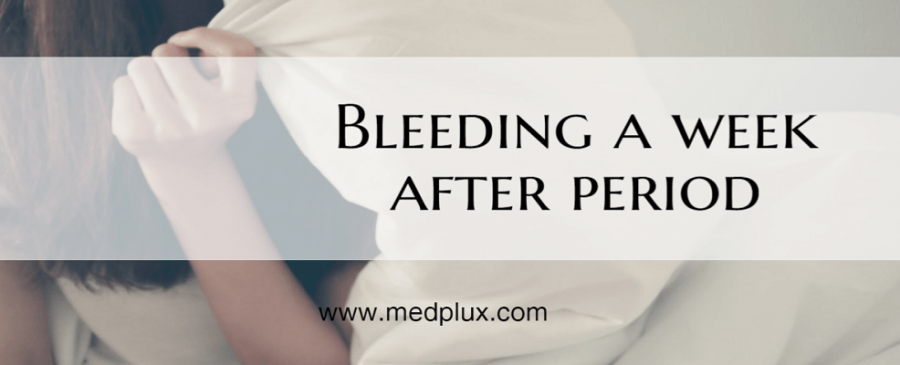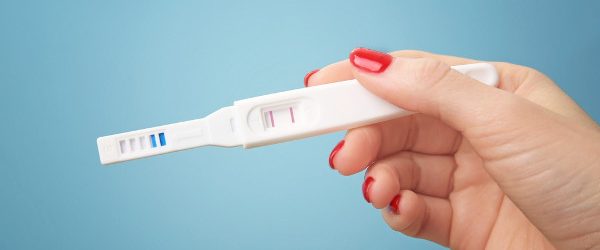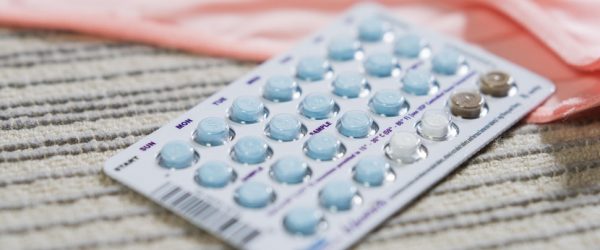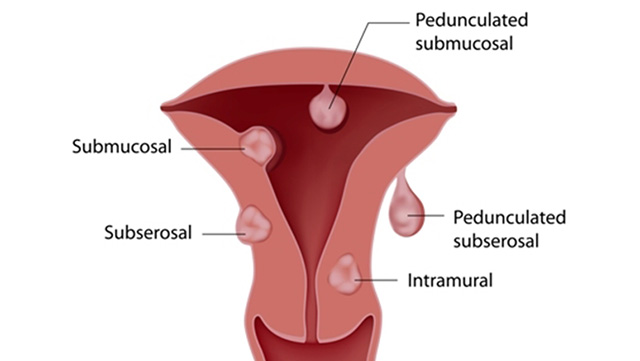What Causes Heavy or Light Bleeding a Week After Period With Cramps?

Last updated on July 27th, 2018 at 12:52 am
Question: What causes heavy or light bleeding a week after period with cramps?
For a lot of girls, having menstrual bleeding for about 5 – 7 days can be challenging; especially with PMS symptoms and cramps that come with menstruation.
After period ends, women begin to prepare for other important issues that affect their daily lives.
However, having to see blood on your panties days to weeks after the end of your menstrual period can be very disturbing.
The first questions that come to your mind are “Is it normal, or I’m I pregnant?”. Some women will also feel they are having their period again after just stopping for a few days.
The truth is women experience spotting from time to time, and if it’s you are experiencing it for the first time, it’s most likely not something you should worry about yet.
A common reason women may experience spotting after menstrual period is your uterus contracting to push out endometrial tissues that were “left over” during your period
As this happens, you may experience mild to moderate belly cramps, spotting or low abdominal pain.
 Another reason women could experience spotting a weeks after period is ovulation. Ovulation is a normal occurrence in your monthly cycle, and apart from belly pain and stretchy vaginal discharge, spotting a week after your period may indicate ovulation.
Another reason women could experience spotting a weeks after period is ovulation. Ovulation is a normal occurrence in your monthly cycle, and apart from belly pain and stretchy vaginal discharge, spotting a week after your period may indicate ovulation.
While it’s more likely spotting after menstrual period will not mean a serious problem, in some women, it may be due to perimenopause, ovarian cyst rupture, hypothyroidism, pelvic inflammatory disease, endometrial carcinoma, uterine fibroids and bleeding disorders.
This article explains the reasons you’re spotting a weeks after period with cramps and the steps to take.
What causes light spotting a week after period with cramps?
If you are experiencing spotting just after your period has ended, it’s most likely not an issue yet. It is common to panic, but you shouldn’t.
Here’s an email I received from Claire (one of my readers)
Hi doc, its been 7 days after my period stopped and I noticed black spotting on my panties yesterday. I also feel pain in my abdomen around my belly button area, breast pain, and nausea. Is possible that am pregnant?
Just like Claire, most women will be concerned its pregnancy or something else. Here are the most common reasons you will spot after period is over.
1. You are pregnant
If you’ve been expecting a baby, having mild spotting after your period may be a sign you are pregnant.
Most women may easily confuse implantation bleeding for their menstrual period. Implantation bleeding occurs after the embryo (formed after fertilization of the sperm and egg) digs into the endometrial lining (covering the inner wall of the uterus).
During this process of embedding the embryo into the uterine wall, some women will experience vaginal spotting with cramps that will last for a few days
In fact, spotting a few days with lower abdominal pain will usually disappear in a few days time.
To be sure it’s implantation bleeding, you should remember the duration of your last period and the color.
Usually, implantation blood that occurs when pregnant only last for a few days (2 – 3 days) compare to your usual period that may sometimes last for 5 – 7 days.
Also, the color of blood from your vagina may give a clue. During menstruation, women experience a reddish blood. If you are experiencing a dark spotting with intermittent flow, it’s likely due to pregnancy.
Having said that, it’s possible you will also have light black spotting if your endometrium is being washed out after period ends. This is because as blood accumulates in your womb for days, it loses oxygen and turns black or brown.
However, if you are experiencing other signs of pregnancy, it’s now time to take a pregnancy test.  The signs of pregnancy are breast pain and swelling, morning sickness, cramps in your tummy, feeling tired easily and sometimes back pain.
The signs of pregnancy are breast pain and swelling, morning sickness, cramps in your tummy, feeling tired easily and sometimes back pain.
If you get these symptoms, you can test for pregnancy. However, you should know that pregnancy test may come out negative when you are pregnant. How soon to test for pregnancy is dependent on many factors listed here.
2. Ovulation
Ovulation is the rupture of the ovarian follicle with the subsequent release of an egg into your fallopian tube (where sperm will fertilize the egg).
If you have a regular menstrual cycle, it means ovulation is taking place and usually occurs 14 days from the start of your next period.
In some women, due to hormone changes at the time of ovulation and rupture of the dominant ovarian follicle, they may experience spotting a week after menstrual period.
The truth is, on a 28-day menstrual cycle, ovulation occurs on day 14 (which is a week after your period is over).
There are other ways a woman can tell if she is ovulation (apart from spotting); One common way is the nature of your vaginal discharge.
Days before ovarian follicles will rupture and release “ovulation egg”, you will already have a high level of estrogen that allows your vaginal discharge to look different.
At this time, you will notice that vaginal discharge become increasingly watery, stretchy and jelly-like.
This type of discharge is an indicator of ovulation and means you are fertile
Other symptoms of ovulation (more listed here) are:
- Cramping abdominal pain with mild spotting
- Heightened senses to smell and taste
- Increased vaginal discharge
- An increased urge for sexual intercourse
- breast pain
- A high cervix that is difficult to feel
So don’t panic; if you are spotting at the time of ovulation, it subsides in a few days time.
3. Lifestyle changes
The are numerous ways you could act or “change your routine” that will cause you to spot between your period.
 Stress, which could be due to heavy work or emotional issues can change the way your body releases hormones (resulting in hormone imbalance).
Stress, which could be due to heavy work or emotional issues can change the way your body releases hormones (resulting in hormone imbalance).
Your period and ovulation hormones get signals from far away in the brain (hypothalamus). This signal regulates other hormones that control your menstrual cycle. If you get worked up for a long time, hormone changes may cause you to spot.
A lot of women will not realize they are already worked out. This guide explains the causes, signs, and symptoms of stress and how it affects your menstrual period.
Another way your actions may cause spotting are drugs you are taking.
If you’ve had intercourse and took medications to prevent pregnancy, it may cause spotting for a few days. Emergency contraception is necessary to ensure you don’t get an unplanned pregnancy. However, they will interfere with your normal hormone balance and secretion resulting in spotting and even a delay in period.
Finally, a lot of women will want to prevent pregnancy for a long time, or they have been advised by their doctor to be on contraceptives either due to heavy painful period or some other medical issue.
If you are on birth control medications, spotting can occur between your period, especially if you’ve just commenced your pills
So, don’t panic except if you are bleeding much more than normal with blood clots.
What causes heavy bleeding a week after period?
If you now have a heavy bleeding a week after period with cramps, it means something is wrong, and you should urgently see your doctor.
Here are reasons for heavy spotting after menstruation stops
1. Uterine fibroids
At the age of 20 – 35 years when a lot of girls can bear children, estrogen levels are very high at this time and can predispose women to have a fibroid.
Fibroids are common in about 70 percent of women before the age of 50. However, most fibroids are small in size and won’t cause any symptoms.
Alternatively, a small to large uterine fibroid may cause vaginal bleeding with clots and abdominal pain. Other symptoms of a fibroid are
- Abdominal swelling if the fibroid is large
- Frequent urge to urinate
- Difficulty in getting pregnant
2. Ectopic pregnancy…See here
3. Early pregnancy miscarriage. See here
Do you have a light or heavy bleeding one week after your period has stopped? Ask us!!!

Marwa
I’ve a moderate dark bleeding (not spotting) after 9 days of the end of my period. What is this?
I was using Evra Patch for one whole cycle and then started my 2nd cycle but couldn’t take the side effect anymore so removed it on the mid of the first week of the 2nd cycle. I got the bleeding after one week from removing it.
Is this bleeding period of something else? And should I see my doctor or not?
Anita
I am 48 years old. I have done btl procedure 15 years ago after my daughter born. Now a days I have period for 4 to 5 days.. Later after 4 days after I had sex with my husband
.i got blood spot and later became heavier periods with some clot blood. Can you advise me on this matter. Thank you
Dorcas
A week after my usual menstruation, am seeing blood again though intermediate, just a normal pad for the whole day. It is been on for like 3days now. I do normally have cramps during my period but not experiencing any cramps now. Please what could be my problem. Thank you.
Deedee
Hey I had my period which lasted a week and now after a week am bleeding with really bad stomach cramps. Is this normal please help
Berline Joseph
I had my period for five days then 8 days after it ended, I started bleeding. Mind you I was on birth control and took the last pill in the pack the day my period started, but I’ve never experienced this, I have irregular menstration (it would come every 3/6 months) At first it was light, but after a few hours, it was a whole plate and I have to change every two hours now. I’m also experiencing cramping and it just feels like I’m having my second period of the month but with non-period blood. Should I be worried?
Tona
I️m having the same thing